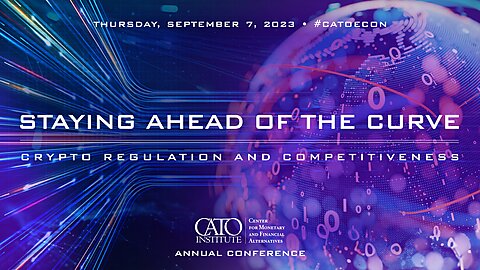Jennifer J. Schulp
While much of the world advances regulation for crypto asset markets, the United States has yet to provide a stable and practical framework for U.S. crypto policy.
In addition to the much highlighted Markets in Crypto‐Assets Regulation adopted by the European Union, crypto‐specific regulatory frameworks have been put into place in multiple jurisdictions, including the United Kingdom, Dubai, Switzerland, Japan, Singapore, and Hong Kong. While the details of these regimes vary—sometimes significantly—they largely provide the regulatory clarity that many say the U.S. market lacks for entrepreneurs, developers, and users. Such clarity is fundamental to achieving many of these jurisdictions’ goals of growing crypto and blockchain businesses within their borders. Some have even declared an intention to become the global hub for digital assets; for example, web3 promotion is a part of Japan’s national strategy, and Dubai has been actively courting blockchain businesses.
The current regulatory situation in the United States, however, is a stark contrast. While congressional debate on regulatory frameworks for crypto asset markets and stablecoins has intensified, legislative action to provide regulatory clarity remains a work in progress. Meanwhile, the Securities and Exchange Commission (SEC) continues an aggressive enforcement agenda against the crypto industry, and entrepreneurs, developers, and users are left to interpret the tea leaves with respect to guidance from other financial regulators and the Biden administration.
Far from encouraging—or even not discouraging—crypto innovation on U.S. shores, SEC Chair Gary Gensler has been dismissive of crypto, implying that the loss of crypto business in the U.S. is not consequential to American financial markets.
Unfortunately, there’s reason to believe that regulatory hostility to the crypto industry may harm the U.S. economy in the long‐term. Survey evidence has identified a lack of clear rules for crypto, blockchain, and web3 tech as both a top barrier to crypto investment and adoption and a perceived challenge to U.S. leadership of the global financial system: 87 percent of the surveyed Fortune 500 executives say clear rules are important to sustain it, and 92 percent agree that new rules are needed. And some have pointed to the U.S.’s stance as “affecting where capital will go and therefore where talent will go and where companies will form.”
Others worry that, “U.S. government indifference and hostility towards open network blockchain technology is squandering the potential for Americans to benefit from it.” While the use of crypto and blockchain continues to develop—and the market ideally will have the chance to determine which uses are worthwhile—the implications of missing out may span far beyond financial markets. Indeed, 64 percent of Fortune 500 executives familiar with crypto or blockchain surveyed said that investing in these technologies is important for staying ahead of their competition.
And these concerns may not take decades to materialize; the SEC’s enforcement positions have resulted in crypto firms being vocal about looking abroad, and lawyers report regular conversations with U.S. industry participants actively considering moving to new jurisdictions. Some evidence also suggests that the U.S. has already been losing its market share for blockchain developers.
Questions raised by the state of U.S. crypto regulation and American competitiveness are paramount: Does unclear regulation of crypto assets threaten the United States’ position as a financial leader? Will uncertainty drive digital innovation from U.S. shores? Is delay in enacting a fit‐for‐purpose regulatory regime harming U.S. entrepreneurs, developers, and users? How should new financial technologies that are designed to be open‐source and decentralized be regulated?
Join us to consider these questions on September 7 when Cato’s Center for Monetary and Financial Alternatives hosts Staying Ahead of the Curve: Crypto Regulation and Competitiveness. This conference will feature a fireside chat with Senator Bill Hagerty and remarks by Commissioner Caroline Pham of the Commodity Futures Trading Commission. It will also bring together policymakers and experts to discuss important questions about the state of U.S. crypto regulation.
Our program includes:
9:30 — 9:35 AM: Opening Remarks by Norbert Michel, Vice President and Director, Cato’s Center for Monetary and Financial Alternatives
9:35 — 10:00 AM: Fireside Chat with Senator Bill Hagerty (R‑TN), moderated by Jennifer Schulp, Director of Financial Regulation Studies, Cato’s Center for Monetary and Financial Alternatives
10:15 — 11:30 AM: Panel Discussion on Stablecoins, the Dollar, and Regulation
Julie Hill, University of Alabama School of Law
Neel Maitra, Wilson Sonsini Goodrich & Rosati
Jai Massari, Lightspark
Corey Then, Circle
Leo Schwartz, Fortune (moderator)
11:45 AM — 1:00 PM: Panel Discussion on Crypto Regulatory Uncertainty and U.S. Competitiveness
Rashan Colbert, dYdX
Daniel Davis, Katten Muchin Rosenman LLP
Ji Kim, Crypto Council for Innovation
Kathy Kraninger, Solidus Labs
George Leonardo, Cap Hill Crypto (moderator)
1:45 — 2:00 PM: Remarks by Caroline Pham, Commissioner, Commodity Futures Trading Commission
2:00 — 3:15 PM: Panel Discussion on Regulating Open‐Source Financial Technology
Jessica Jonas, Bitcoin Legal Defense Fund
Bradford Newman, Baker McKenzie
Jack Solowey, Cato’s Center for Monetary and Financial Alternatives
Yesha Yadav, Vanderbilt Law School
Niki Christoff, Christoff & Co. (moderator)
Register here to attend in‐person or online to join this timely conversation.

